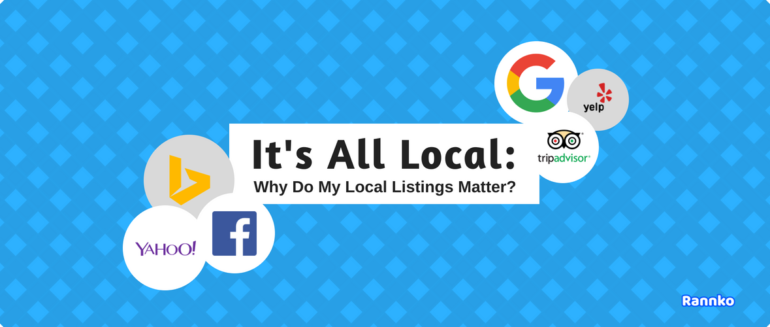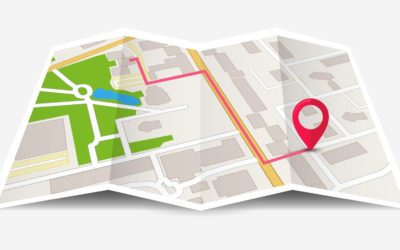Your true power lies in your find-ability. Your business has a prime piece of real estate and everyone can get to you in person. But, are they able to find you online? Today, your business footprint extends much further than the four walls of your restaurant, office, law firm or hotel. Local listings help customers find you online, getting them interested before even stepping out the front door. But just how much do local listings really matter? Why is it such a big deal for a business user to claim and update their listings?
The answer may have different terminology depending on your business of trade, but they all root to the same core variable: customers. Customers are your bread and butter, the reason you’re in business to begin with. You may think that your listing being on Google or Facebook is enough. Google takes into consideration the presence, and more importantly, accuracy of your local listings when determining what to show a user. But there’s a lot more to it than just having a simple listing.
Make Every Character Count
Putting your business information online is as critical as listing your address right on your front door. It needs to be right each and every time, no matter what. Search engines like Google, Yahoo and Bing sort through larger volumes of data quickly to determine what to show a user. Immediately, they check for business names and keywords. If your core information is not accurate on multiple locations, Google is likely to skip over your business, instead showing a competitor of yours down the road.
What’s this mean?
Make sure every single character of your core data – business name, address and phone number – are matched up identically on your listings. Even a slight variation, like an abbreviation or missing period, could cause Google to move you further down in rank.
Can They Get Your Digits?
The power of a phone call is only as good as the connection on the other end of the line. If your customers are finding multiple numbers to reach your business, it’s quite possible their judgement will hinder them from choosing to even call you at all due to disorganization. What’s more, if your numbers are out-dated and go to a dial tone or disconnect upon calling, you’ve just lost a possible sale for something easy to avoid.
What should I do?
It’s okay to have two different numbers in most cases. Many businesses have call tracking numbers that differ from their direct local numbers. However, with Google, most local listings, and even customers, the value is in local. Keep a local number on all of your listings. If you value call tracking, make sure that number is the same on all listings, as well.
Lock & Key Your Information.
You’re on your way to perfecting your local listings – only to find that a few of the listings you’ve updated recently have suddenly changed yet again back to inaccurate information. Most online directories, if you are not adding in the information yourself manually (and often times even if you are) collect data through what’s called an aggregator (not to be confused with an alligator). Aggregators feed this data, whether right or wrong, to listings that are unclaimed.
Can I stop the aggregation?
Yes! Claiming your listings is the easiest, and best way, to lock down your listings. This also ensures that you are the one holding the keys. Protect your claimable listings from your competitors, inaccurate and outdated data, and yes — even the alligator!
That’s a Lot to Manage
Managing local listings for your restaurant, office, firm or spa can be a full-time job in itself. Even then, it’s unlikely you’ll ever be able to claim all of the local listings on various directories. Some only allow you to do so through paid partnerships, leaving you only in control free-claim profiles.
But that’s not to say it cannot be done. It certainly can be done manually by you or your marketing team. If you’d like to stay in complete control at all times, and quickly have peace of mind on your local listings, software platforms like Rannko PowerListings exist just for this reason. Taking the guess work (and billable hours) away gives you more time and money to tackle other things that improve the overall customer experience (or at least let you take some more time for yourself).





